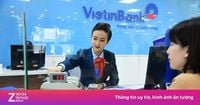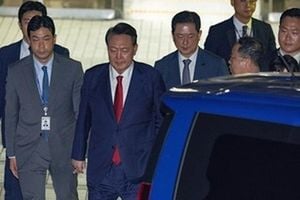On April 18, 2025, former Google CEO Eric Schmidt made headlines by declaring that artificial intelligence (AI) is entering a period of rapid development, suggesting that it may soon learn and improve without human guidance. Speaking at a seminar organized by the Special Competitive Studies Project, an initiative he founded, Schmidt explained that current AI systems are beginning to operate independently. They are learning, improving, and even planning autonomously, a shift he describes as a significant leap in technology.
Schmidt emphasized that "computers are now learning how to improve themselves. They are learning how to plan, and they no longer need to listen to us." He referred to this phenomenon as "recursive self-improvement," where AI forms hypotheses, experiments through robotic labs, and continues to refine its research without human intervention. This advancement raises alarms about the potential impact on the job market, as Schmidt predicts that within a year, AI could replace most, if not all, programmers.
He stated, "We believe that AI is being underestimated, not overhyped as many think." Schmidt pointed to tools like ChatGPT, Claude, Gemini, and Deepseek, which, although not specifically trained for programming, are being widely utilized for that purpose. With the ability to self-tune, AI is poised to explode at an incredible pace, potentially surpassing human control.
In addition to technological advancements, Schmidt also warned the U.S. House Energy and Commerce Committee about challenges in the energy sector. He noted that the electricity demand for AI will soon exceed the current grid's capacity. He illustrated this concern by stating, "People are thinking about building data centers that consume up to 10 gigawatts. In contrast, an average U.S. nuclear power plant only provides about 1 gigawatt."
To avoid falling behind, Schmidt urged the U.S. government to quickly adjust energy policies and increase investments in both renewable and non-renewable energy sources to ensure the country does not lag behind other powers. He stressed the necessity of enhancing oversight of AI models, especially open-source platforms, which, if not well-managed, could pose a serious threat to national security.
Despite these concerns, Schmidt affirmed that AI still requires human governance and should rely on high-quality data to maximize its potential. He concluded, "Scientists must be in control, and AI should only be a support tool—that is the proper order."
Meanwhile, at VietinBank, Chairman Tran Minh Binh shared insights on the bank's strategic direction during the annual general meeting held on the same day. He announced that VietinBank is accelerating the implementation of strategic projects aimed at enhancing customer experience (CX), employee experience (EX), and overall operational efficiency. A significant focus of the bank's efforts is on innovating service quality management, driving digital transformation, and applying AI.
Binh revealed that the bank assigned business targets for 2025 to its branches back in November 2024, utilizing a data analysis model based on the previous seven years, combined with economic data from various industries and localities, and executed by AI. "The targets this year are assigned by artificial intelligence, so they cannot be wrong. This is a fair way to allocate tasks across the system," he stated.
Additionally, Binh mentioned that he personally uses a virtual assistant to support his daily work. The bank is also testing an AI-powered contact center model that could replace up to 70% of operational staff. However, instead of cutting jobs, VietinBank plans to retrain and transition staff to higher-value positions.
Despite most branches meeting their scale targets in the first quarter, Binh acknowledged that profitability remains a challenge. To incentivize performance, the bank has introduced unprecedented rewards for units that achieve their profit targets early. He also stated that branch leaders failing to meet their targets would be replaced.
When asked about the impact of U.S. tariffs on foreign direct investment (FDI) enterprises within the bank's credit portfolio, Binh noted that while this is a significant concern, VietinBank has an economic advisory council of top experts who meet regularly to assess global economic conditions and predict trends that could affect Vietnam and the bank.
While acknowledging the potential risks associated with U.S. tariffs, Binh indicated that VietinBank has not incorporated these risks into its 2025 business model due to the difficulty in accurately determining their impact. However, he assured stakeholders that the bank has considered adverse scenarios and has proactive plans in place. Consequently, the bank's business scenario is not expected to change significantly, even with global economic fluctuations.
Binh projected that credit growth in 2025 would be more challenging than in 2024, with the current credit absorption rate in the early months of the year being low. Nevertheless, VietinBank aims to maintain a growth rate of about 5%, the highest among state-owned banks during this period. He noted that credit growth will be influenced by tax policies, but the bank is optimistic about positive signals as it closely engages with large public investment projects, both domestic and foreign.
Regarding the direct impact of U.S. tariff policies on the bank, Binh stated that the effect would not be substantial, despite the bank having a relatively high loan ratio to FDI enterprises. He reiterated VietinBank's commitment to maintaining its business plans for the year, emphasizing that the results for 2025 would be impressive and show growth compared to 2024.
For 2025, VietinBank has not yet disclosed specific profit growth targets but presented a profit growth plan for approval by the State Bank. The bank anticipates total assets to increase by 8-10%, with credit balances rising according to the State Bank's direction and market conditions. Capital mobilization is expected to grow in proportion to credit growth, and the bad debt ratio is projected to remain below 1.8%. After the first quarter, VietinBank reported a pre-tax profit increase of 6% compared to the same period in 2024, reaching nearly 6,600 billion VND.





